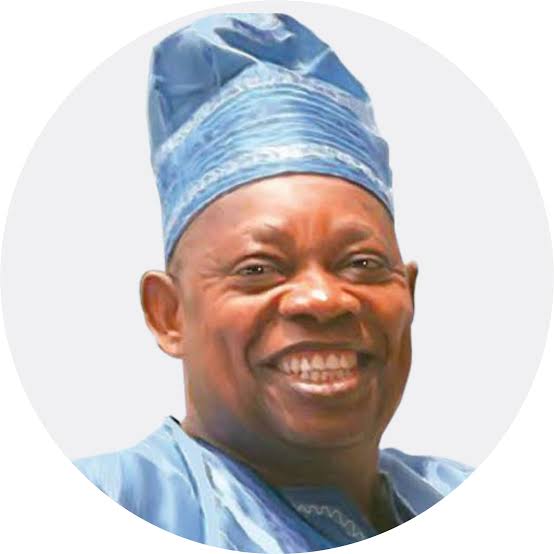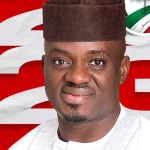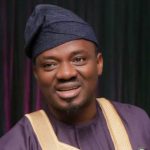Anthony Kila previews the upcoming play produced by The Duke of Shomolu Productions and argues that the play is about a people not a man.
Kashimawo is the name of a new play in town that I invite us to think about today. Town here is Lagos, Nigeria. Though I cannot guarantee a positive response, I will however be glad to ask producers to bring it to you if you cannot come to Lagos.
I am going to be inviting to Lagos a retired Professor of pharmacy from ilesa to come watch the play, just to disrupt his highly earned peace and very organised life. The play is slated for the 31st of March and 1st April 2024, the Lagos venue is the Agip Recital Hall, Muson Centre
The play Kashimawo derives its title from the middle name of the protagonist of the play, the late Moshood Kashimawo Olawale Abiola, the Nigerian born wealthy business tycoon, philanthropist and politician popularly known as MKO. Politics has a lot of ways of stealing the show anywhere it rears its meddling rowdy head, and so it comes as little surprise that MKO died as and he is more remembered as the winner of the 1993 June 12 elections that was nullified. Rarely will you find any comment on that election without the phrase “freest and fairest”. Abiola’s campaign slogan for that election was “Hope 93”. Feel free to make of it what you wish of it, thirty years after the 1993 Abiola’s election, the campaign that won the presidential election in Nigeria was tagged “Renewed Hope”.
I have elsewhere pointed out that MKO Abiola is a capsule of humanity and by that, I mean a complete dose of everything human, from dreams and phobias to flaws and virtues to tribulation and victory to abject poverty and abundance to loyalty and betrayal to love and hatred. A few years ago, long before The Duke of Shomolu’s Kashimawo was produced, I wrote that “just like in a book on humanity, the life of Abiola is made up of chapters about most fragments of humanity. From cradle to grave, the man’s life had outstanding episodes about humanity and each episode is presented in contradictory terms”. Though I ended my notes then by noting that “the lofty heights he attained in life look even higher when we remember that he was not even given much chance when he came to the world on Tuesday 24th August 1937: Seven days after he was born, some of the names they gave him were Kashimawo, translatable as “let’s wait and see’ As a fellow Abiku, let me say for MKO we have seen and we continue to see”. My musings were limited to the realms of this bodily world. The Duke of Shomolu’s Kashimawo however goes farther.
In Kashimawo, we are presented with not just chronicles of the life of the protagonist but a full study of his life and times. The study is a mix of anthropology, epistemology, mythology all situated in the Yoruba cosmogony. Readers familiar with the Yoruba worldview will know that, in that conception, the life of a human (known as Eda) is made up three major segments. Firstly, before coming into the world (where a person’s destiny is decided), secondly life in the physical world (where destiny is lived and can be altered) thirdly life after the physical world (the joining of ancestors). The play Kashimawo is billed to cover all these segments of life.
Unlike in the Ola Rotimi’s magnum opus, where we are told that “The struggles of man begin at birth. It is meet then that our story begins with the birth of a child…”, the story in Kashimawo begins from death and then goes to life before arriving at birth. Yes, the writers and producers are keen to play their own songs, they don’t want to be chroniclers of known stories nor do they want to do what others have done. The road not taken as described by Robert Forest is their choice.
Their recourse to the Yoruba cosmogony will allow the performers of Kashimawo to give voice and body to concepts and elements like Iku (death) that is normally loathed and dreaded by human beings. With his found body and voice, Iku will get a chance to explain why he does what he does like taking MKO, a man loved by many, away from the world and to the gates of heaven. Iku also complains about the occupational hazards of his job, mainly misconceptions, hatred and blame whilst he is in reality just a soldier obeying orders. It is easy to understand, afterall, it took John Donne to say for us “Death be not proud”…
In response, to Iku’s complaint, we shall be taken in Kashimawo on a tour of the life and times of MKO to see if and why MKO had fulfilled his destiny in the world before Iku was sent on earth to take him away and to see if and how MKO will be considered after his time in the world. A tour that deals with any life that covers aspects of death, riches, poverty, destiny, love, hope, victory, betrayal and luck cannot but be a mirror of our own lives. Yes, Kashimawo puts our lives on stage and the play is more about us than MKO.
The Duke of Shomolu Productions is not new to these epic attempts, from the same stable audiences have treated to Obafemi Awolowo, Sardauna, Fajuyi etc. I spoke to the restless head of Duke of Shomolu Productions about Kashimawo and he was quick to tell me that, this play is not about June 12 and they are not using known names on stage as this distracts from the lessons and messages they want to send. If they are flowers, they will blossom…
The Kashimawo we are billed to see in Lagos on the 31st of March and 1st of April is written and directed by Rasaki Ojo Bakare, a professor and practitioner of arts in all its forms, so we have no reason not to expect full theater, with dance, drama etc.
Join me if you can on twitter @anthonykila to continue these conversations.
Anthony Kila is Institute Director at CIAPS. www.ciaps.org.






